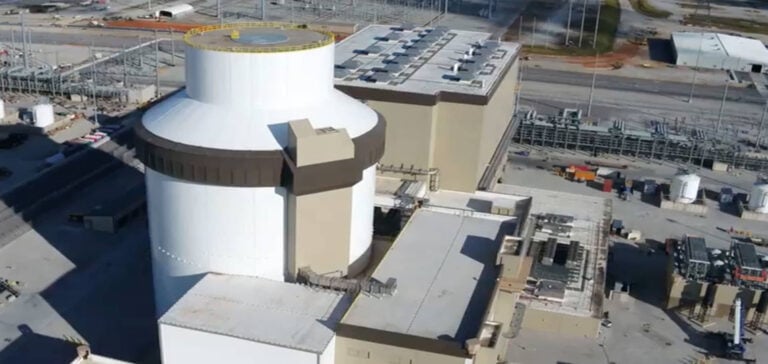The IAEA Projections are promising for the future of nuclear power, and it couldn’t have come at a more opportune time. In a world facing a growing climate emergency, debates on how to reduce CO2 emissions and guarantee a stable energy supply are more relevant than ever.
The key to climate change
The Director General of the International Atomic Energy Agency (IAEA), Rafael Grossi, stresses that climate change and security of energy supply are major challenges. Against a backdrop of geopolitical instability and conflict, many countries now see nuclear power as a reliable and resilient source of energy.
According to the IAEA’s most optimistic projections, nuclear generation capacity could double by 2050, reaching 890 gigawatts, compared with the current 369 GW. This growth is largely due to the fact that nuclear power is a low CO2-emitting source, as well as being controllable, which means it can be adjusted according to demand, unlike intermittent renewable energies.
Challenges to meet
However, nuclear power is not without controversy. Its costs and risks are major concerns for many countries. Despite this, the second international conference on the role of nuclear power in combating climate change, currently being held in Vienna, shows that this energy source deserves serious consideration.
At present, nuclear power supplies around 9% of the world’s electricity in 31 countries, far behind coal. However, 20 years ago, this share was 18%. This underlines the untapped potential of this energy source. The Director of the International Energy Agency, Fatih Birol, regrets that many European governments have decided to turn their backs on the atom, when it could so effectively complement solar and wind power.
Investing in nuclear power
To support the growth of nuclear power, public authorities and international institutions must consider financing this transition. It’s time to recognize that nuclear power can play a crucial role in reducing CO2 emissions and combating climate change.
In conclusion, IAEA projections point to a promising future for nuclear energy. At a time when climate urgency prevails, this resilient, low CO2-emitting energy source could well be the key to a sustainable energy future.
This analysis underlines the growing importance of nuclear energy in the fight against climate change, and the need for investment in its expansion, despite the challenges and controversies.






















